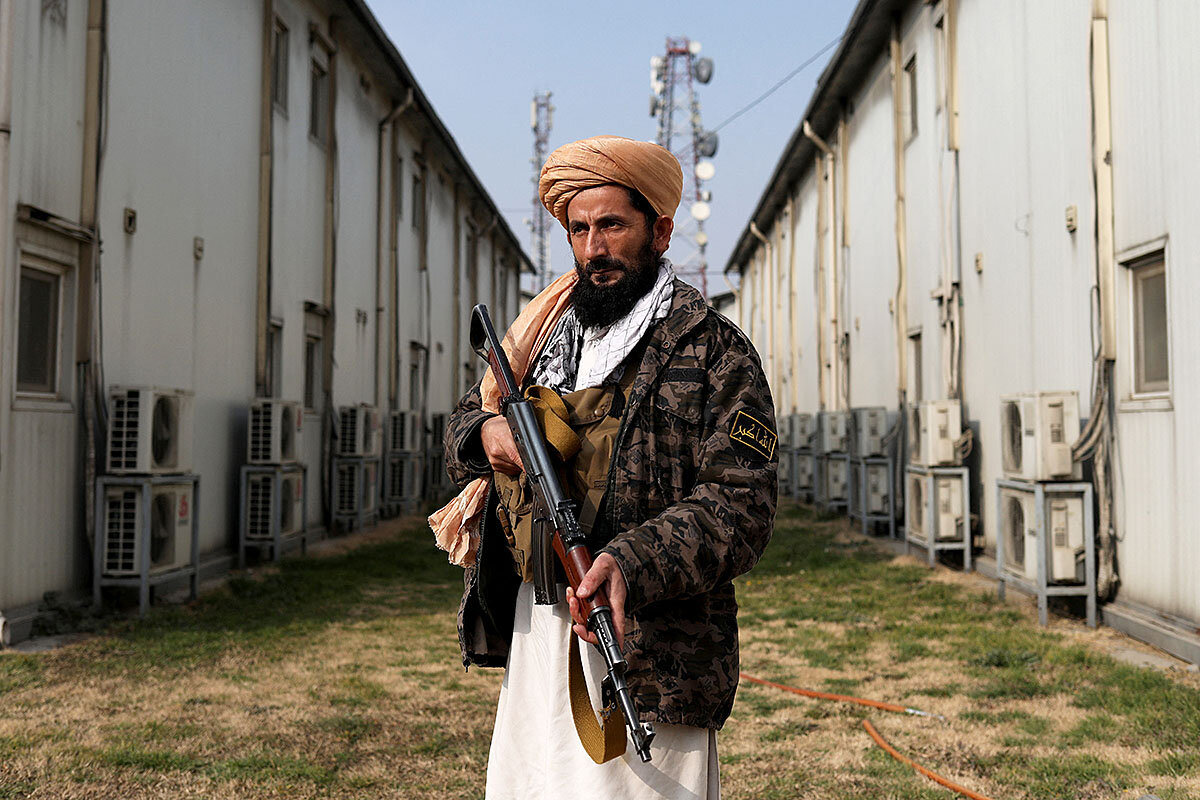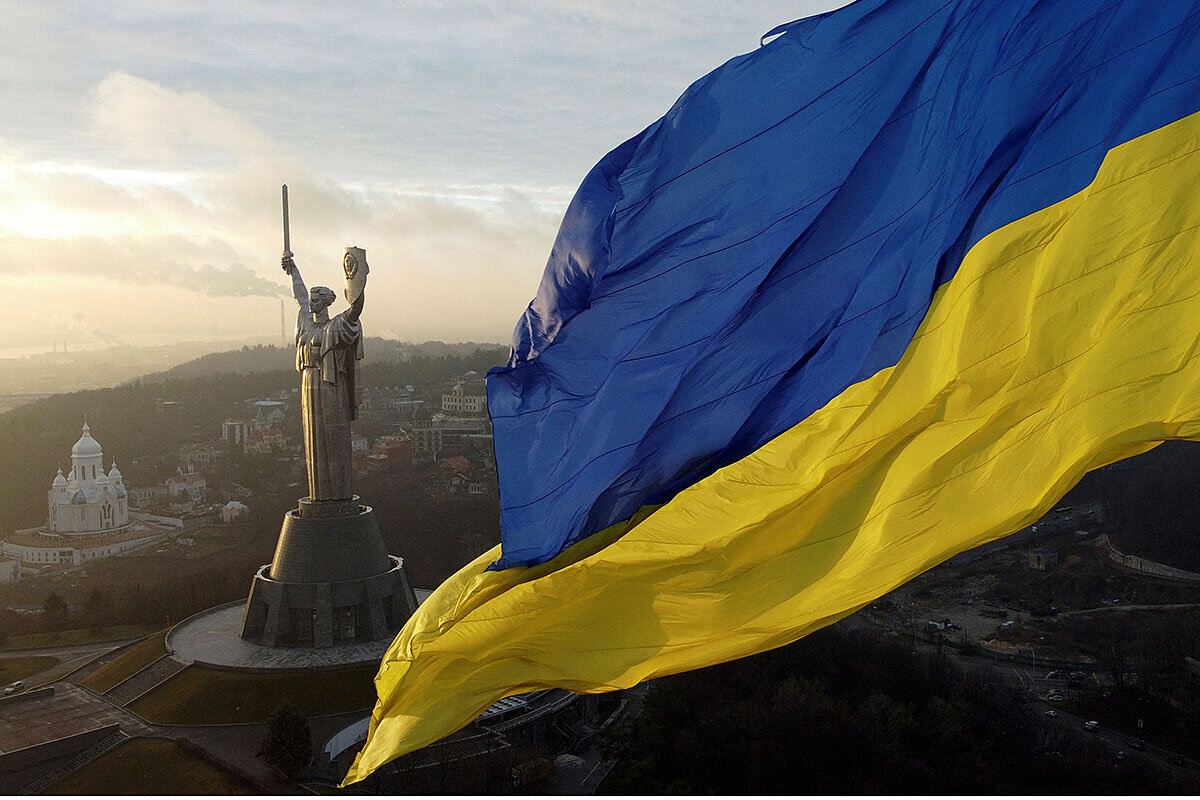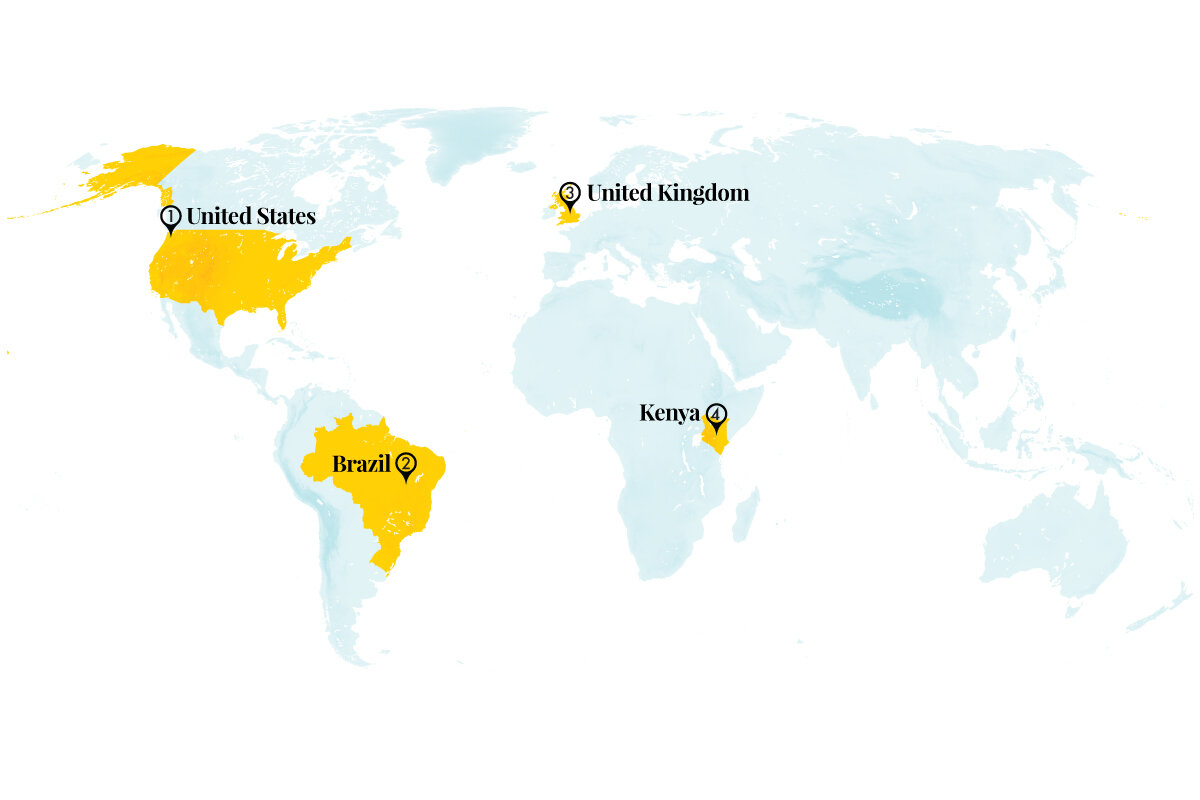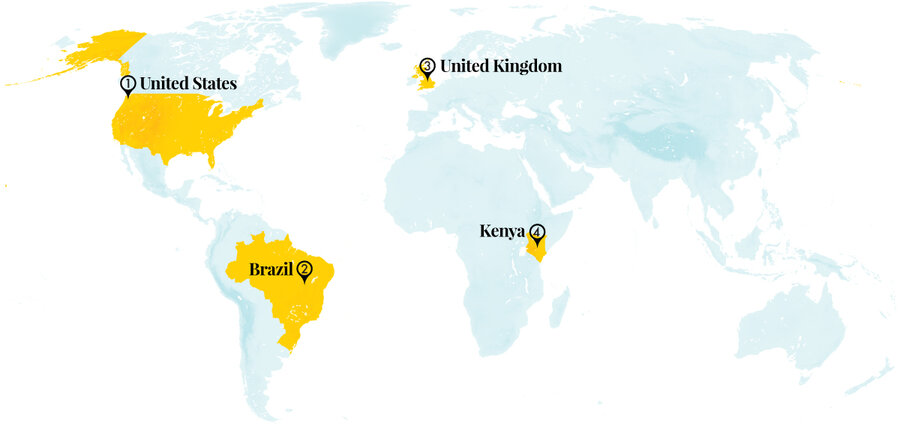The Taliban returned to power professing a belief in freedom of speech. But in practice, they are silencing critics in keeping with their approach to imposing control over Afghan society.
Monitor Daily Podcast
- Follow us:
- Apple Podcasts
- Spotify
- RSS Feed
- Download
 Linda Feldmann
Linda Feldmann
It’s that time of year, when Americans settle in for their annual viewing of the Frank Capra classic “It’s a Wonderful Life.” And with reason: The story of a man saved from suicide by a guardian angel who shows him how meaningful his life has been is widely seen as the most inspiring film ever made.
This month, the 75th anniversary of its release, the film is getting special attention – including at the annual “It’s a Wonderful Life” Festival in Seneca Falls, New York. Karolyn Grimes, who played little Zuzu and is a festival regular, tells The Washington Post that the film’s message has helped sustain her in her own life.
“I always try to look at the bright side,” she says. “There is something good, you just have to look for it.”
Perhaps the film’s most striking aspect is that it wasn’t a hit. Reviews were mixed, and it barely broke even. Only when the copyright lapsed in the 1970s did it become widely available on TV – and gain status as a beloved classic.
I’m reminded, too, in a broad sense, of President Lincoln’s Gettysburg Address, delivered on a battleground during the Civil War. Just 272 words, it was overshadowed by the two-hour speech that preceded it. Lincoln himself suggested his words would be forgotten. And the press gave the speech mixed reviews, depending on the political leanings of the newspaper.
But its message was timeless, that America must honor its war dead by resolving “that this nation, under God, shall have a new birth of freedom, and that government of the people, by the people, for the people, shall not perish from the earth.” Eventually, Lincoln’s elegant but terse address earned its due universal praise.
Sometimes, it seems, greatness is recognized not in a flash, but over time.











